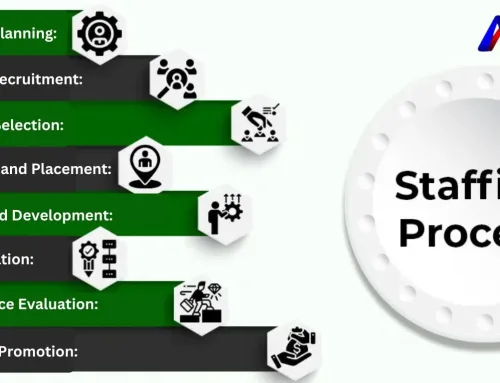Temporary Staffing services can help your business address any unexpected absences in its workforce, and allow you to evaluate potential workers before deciding whether or not to hire them permanently.
Staffing agencies help businesses save both time and money by recruiting and screening potential candidates for their roles. Companies only pay for hours worked while the staffing agency handles payroll taxes and workers’ comp insurance for them.
The Advantages of Temporary Staffing
Temporary staffing offers businesses that don’t want to make long-term commitments but need assistance with time-consuming or specialized projects an efficient solution that keeps productivity high without incurring the costs or inconvenience associated with adding permanent team members.
Temporary Staffing Temporary workers can help businesses keep operations running smoothly while seizing opportunities with confidence. workers may fill in for employees on vacation or sick leave; however, many organizations also rely on temp workers as needed during unexpected peaks in demand or short-term projects that require extra hands. Whatever their purpose, temporary staffing offers businesses an effective solution that ensures smooth operations and seize new opportunities with certainty.
Employer Benefits
Hiring temporary workers allows a company to quickly add extra staff when required without going through the extensive selection and hiring processes associated with full-time employees. This gives companies more flexibility when reacting to unexpected events or maintaining steady flow of work when regular staff are on vacation or unavailable.
Companies using temp workers also find them useful when an important project or event comes up, such as seasonal sales increases or projects with tight deadlines. Furthermore, hiring temporary staff allows companies to evaluate potential members before making them permanent members of their team.
Flexibility for Employers
Temporary workers typically receive hourly wages without employee benefits, helping to reduce overhead and payroll tax costs while simultaneously making them easier to dismiss quickly in the event they don’t fit with company culture or do not fulfil their role as expected. This gives organizations greater control over when terminating employees without lengthy termination processes taking place.
Temporary employment offers candidates who enjoy frequent career transitions the flexibility to move between different industries or prefer contract positions over traditional full-time ones. Furthermore, temp work allows an opportunity to gain experience across industries, environments and job responsibilities that can prove invaluable when building your resume or setting career goals.
Staffing agencies have the resources to quickly locate candidates with specialized skills that employers may find hard to source on their own. From software program specialists and accounting experts, to HR personnel with niche experience – staffing agencies are invaluable when it comes to quickly finding qualified employees with specific capabilities that may otherwise prove hard for businesses to hire on their own.
Access to Specialized Skills
Temporary workers can help increase productivity in other ways as well. By taking over time-consuming or specialized tasks from core team members, temporary workers allow them to dedicate more of their efforts on projects with greater significance – thus leading to both an increase in overall productivity as well as higher-quality outputs.
Temporary employees can bring energy and fresh perspectives to your workplace, enhancing existing processes and workflow. Depending on the circumstances, consider pairing temporary workers with permanent team members so they can learn from one another and develop relationships while strengthening employee retention by feeling valued and connected to company culture even if their contract lasts only for weeks or months.
Benefits for Temporary Staff
Temporary work offers employees looking for greater flexibility and testing different industries an excellent opportunity to explore all of their possibilities before making a definitive commitment. Furthermore, temp positions provide a means of developing transferrable skills which will boost marketability in an ever-more-competitive job market.
Temporary staffing provides companies with an effective and cost-efficient means to hire talent without going through an exhaustive hiring process. Businesses can quickly fill gaps quickly to maintain productivity levels; additionally, temporary workers bring fresh perspectives, ideas and innovative processes into existing workflows. Finally, temp staffing allows companies to recruit multiple candidates for open positions before selecting their ideal one without incurring recruitment and administrative expenses.
Temporary employees may receive benefits such as health insurance through staffing agencies; however, employers should determine whether providing employee benefits to temp employees can impact their tax liability.
Flexibility and Work-Life Balance
Temporary or contract work offers flexibility to those seeking better work-life balance, giving them more control to accept or decline assignments based on their schedule and preferences. Working temporarily also gives you freedom to pursue career goals outside the office while spending quality time with family and friends; making this option especially appealing for recent college and high school graduates looking for experience across various environments.
Temporary employment provides you with an ideal opportunity to learn and gain experience across different industries, giving you the chance to find your niche within the workplace. Furthermore, temporary roles allow you to better understand a company’s culture, ethics and values prior to committing fully-time roles.
Skill Enhancement and Diversification
Temporary-to-hire contracts provide the opportunity for immediate employment once your temporary assignment ends, with some employers needing someone immediately or taking longer. Transition to permanent positions could take place quickly or could take several months depending on your employer and how quickly they need someone fill the gap between two temporary assignments.
Hiring temporary employees can save your company money in the long run. Temporary workers can cover maternity leave, vacations and seasonal demands without needing additional permanent hires; plus they make an immediate contribution to team productivity (over one third of managers started as temps and went on to become key team players!). In fact, adding temp staffers helps avoid delays while simultaneously meeting demand; temporary workers also serve as quick solutions when dealing with empty desks or those left vacant due to outgoing employees.
Challenges of Temporary Staffing
Temporary employment offers employees more flexibility in their jobs and businesses looking to quickly expand staff at any moment. But hiring temporary employees can present its own set of challenges that impede productivity – so it is crucial that employers know how to use staffing agencies effectively when employing temp workers and avoid making common errors when managing temp workers.
Lack of Job Security
One of the primary obstacles associated with working with temporary workers is their inequitable rights and benefits compared to regular employees, since staffing agencies bear most of the financial risks involved in hiring temporary staff like payroll taxes and workers compensation insurance premiums. Companies should clearly outline their expectations for temporary employees as well as explain what benefits may be provided through each agency.
Communicate frequently with temps regarding changes to their roles, responsibilities and processes. Employees can become confused when their duties change suddenly – keeping an open dialogue can ensure employees stay happy and productive.
Limitation on Benefits
One of the primary challenges businesses face in hiring temporary workers is that their benefits do not match those enjoyed by regular employees, such as health insurance and vacation time. This can create frustration on both ends, possibly leading to resentment or distrust between employers and workers. To combat this issue, it is vital that any prospective candidates discuss each company’s employee benefits program before accepting employment offers.
Integration Issues A major drawback to working with temporary employees is their inability to mesh smoothly with regular staff, creating friction between both parties that makes building relationships challenging. To alleviate this problem, make a point of including temp employees as often as possible in meetings and social activities.
Overworking Temporary Employees
One issue associated with temporary employees is overworking them. People sometimes assume that because temporary workers won’t be around long, they can push harder – leading to burnout and decreased productivity. Therefore, it is important that when hiring temporary workers it is assessed what tasks each one can handle to avoid overworking them and overburdening.
Recruitment and Hiring Time
Businesses experiencing productivity challenges often turn to temporary employees to supplement the workforce, yet the recruitment and hiring process can take considerable time and impact the productivity of a company. To minimize this issue, it’s critical that companies find an agency equipped with resources and expertise for quickly recruiting and screening talent.
At Action Group, we specialize in providing skilled temporary and contract workers that will contribute to the success of your organization. For more information on how we can assist, contact us now – we look forward to connecting you with the perfect temporary or contract employees to meet all your business needs!
Overcoming Temporary Staffing Challenges in Restaurants
Businesses experiencing seasonal peaks often need additional staff members to meet customer demand. While hiring and training permanent staff for this purpose may be costly and time consuming, temp staffing offers a cost-efficient solution with flexible availability for meeting seasonal spikes in customer demands.
Streamlining Recruitment through Staffing Agencies
Staffing agencies can provide businesses with pre-screened candidates who meet specific skills, education and experience criteria for filling roles within their business. This enables managers to focus their energy on other essential business priorities during this period of high growth and high demand.
Managing Busy Periods in Restaurants with Temporary Workers
Many businesses, including restaurants, employ temporary workers during busy periods to reduce expenses and time required to hire and train new staff members. Although this practice can be effective, communication strategies must be established with these workers in order to ensure they comply with restaurant standards.
Unlocking Value: Perspectives and Experiences of Temporary Workers
Temporary workers bring with them valuable perspectives and experiences that can add significant value to any team’s work performance. Their insights and ideas may help improve operations or service quality and should be encouraged within an open and welcoming environment. It is crucial that temporary employees are treated like potential permanent members from day one by investing in training opportunities so they feel valued and included as potential permanent contributors of a restaurant team.
An effective way of doing this is providing them with an in-depth orientation on their first day, which should include a tour of the restaurant and introductions to key team members. Furthermore, pairing them up with an experienced member who can act as mentor and provide guidance is also key; furthermore regular meetings provide managers an opportunity to monitor temps’ well-being and address any potential concerns they might have.
Navigating Flexible Schedules: Challenges for Temporary Workers
Temporary workers face one of the greatest difficulties in finding an arrangement that fits with their lifestyles, since unlike full-time employees who enjoy set hours each week, temp workers must often switch between different organizations with differing schedules. Therefore, communication must take place effectively to provide them with enough flexibility in managing personal commitments.
Temp-to-Perm Strategy: Building Long-Term Relationships
temporary assignments offer workers a better chance at landing permanent roles within companies they’ve previously worked for, since temp agencies list themselves as employers on resumes instead of every individual company they worked at; this makes them less likely to appear like flaky hires or bad fits for employers’ teams and saves both parties both time and money by eliminating costly mismatches in temporary workers.
The Future of Temporary Staffing
Temporary staffing industry is currently experiencing rapid transformation due to shifting economic and technological trends, with staying current on these developments being crucial for its continued success in an increasingly competitive landscape.
Emerging Trends in the Gig Economy
The gig economy is opening up new doors to workers and has completely altered how businesses engage their workforce. Technology such as automated recruitment software and AI-driven algorithms is helping improve efficiency by better matching candidates to specific positions more quickly; this trend will only continue, making it even simpler for companies to find and hire flexible workers.
No matter the size or scope of your business, finding an optimal mix of permanent and temporary staffing options is key to reaching your goals. Your decision will have an immediate impact on your bottom line, work-life balance, operational flexibility, and overall operations management needs – so it is essential that you understand both models’ advantages and disadvantages to make an informed decision that’s tailored precisely to your organization.
Flexibility at Its Finest: The Appeal of Temporary Staffing:
Temporary Staffing Provides Flexibility at Its Finest In today’s ever-evolving business landscape, an increasing number of organizations are turning to temporary staffing solutions as a flexible way to gain flexibility for their operations. From seasonal production fluctuations to meeting project deadlines, flexible staffing offers numerous advantages that have contributed to its increased popularity among companies.
Employers that utilise flexible workforces can leverage an expansive pool of skilled freelancers and independent contractors who are available for short-term assignments to reduce expenses and streamline hiring processes, while increasing agility within their workforce. Furthermore, this model gives workers the chance to apply their specialised talents across different settings while enjoying greater work-life balance.
Temporary roles offer workers who are looking for multiple sources of income an attractive option. This is especially beneficial during times of economic instability or pandemic, when unemployment benefits and stimulus checks may no longer cover essential expenses. Furthermore, temp roles provide an ideal way for aspiring employees to explore various industries before making a full-time commitment to a position.
Balancing Flexibility and Stability: Challenges and Solutions:
Balance Between Flexibility and Stability A flexible staffing model may have many advantages, yet still presents challenges. Aside from managing an ever-changing workforce and keeping up with rapid turnover rates, its lack of clarity around expectations and onboarding processes may create disruptions as well as cause confusion for employees.
As with any temporary workforce solution, one of the best ways to mitigate risks and maximize rewards is partnering with an expert staffing agency. An reputable agency will be able to access a large pool of candidates and identify those most suited for your business’s requirements; additionally they can guide you through the hiring process such as background checks, drug testing and any onboarding requirements – helping mitigate legal or regulatory challenges you might face later on.
Challenges Faced and Lessons Learned
Temporary staffing enables organizations to quickly recruit, train, and deploy skilled workers for temporary assignments ranging from seasonal surges in demand to filling in for employees on leave or testing potential new hires before making permanent commitments. But successful implementation requires organizations to address certain hurdles that threaten its success and efficiency.
Challenges Faced and Lessons Learned
Temporary staffing can be an incredibly useful asset to businesses of all sizes and industries when managed successfully, giving access to talent pools they otherwise wouldn’t. Furthermore, recruitment processes become faster while costs decrease significantly due to reduced time-to-fill. But temp staffing also poses unique challenges which require organizations to reevaluate how they approach workforce planning and management so as to achieve organizational goals more quickly and maximize performance.
Effective Implementation of Temporary Staffing
There are numerous factors that contribute to the successful implementation of temporary staffing, from training programs that effectively bridge employee skill gaps, to forging strong relationships between managers and temporary workers. One leading tech company worked with a staffing agency on an intensive 40-day boot camp program to train ambitious yet unqualified job seekers in IT skills – this initiative led to many temp-to-perm conversions!
Partnerships with reputable staffing agencies can enable businesses to tap a wider pool of candidates, speed up time-to-fill rates, and reduce costs by outsourcing this task of finding qualified workers. Furthermore, such partnerships help businesses better understand the current talent market as well as gain insights on how best to attract future professionals.
Effectively conveying expectations to temp workers can assist in quickly getting them up-and-running and increasing productivity. By opening lines of communication, valuing their input and encouraging an inclusive work culture, temp workers can feel valued members of the team – improving morale as well as work output.
Conclusion
Healthcare institutions sometimes encounter difficulty recruiting and retaining travel nurses, creating difficulties for major hospitals in recruiting staff for travel nursing positions. Avoiding costly travel nurses, this organization partnered with a staffing agency to find an alternative staffing solution that provided more flexible work schedules and career development for existing hospital-employed nurses. This strategy successfully reduced hospital dependency on travel nurses and saved significant resources over time, all while simultaneously improving patient care. By adopting this strategy, the hospital was able to retain experienced hospital-employed nurses while improving patient outcomes and developing trusting relationships among its staff members. In turn, this initiative served as an exemplar for other organizations looking for alternative staffing solutions.




